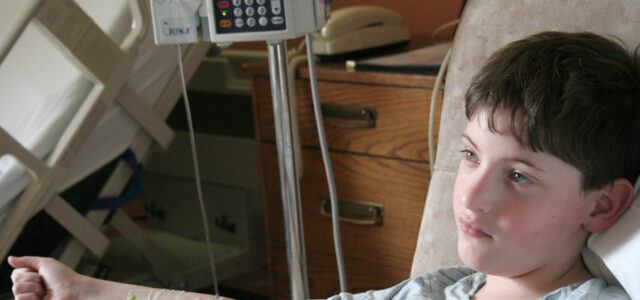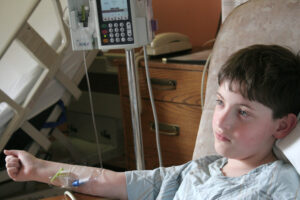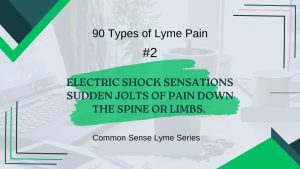
“The patient is a 12-year-old previously healthy boy with a recent history of participation in an outdoor camp for 2–3 weeks who began to gasp for air while riding as a passenger in a car, with subsequent cyanosis and cardiac arrest, following participation in recreational outdoor activities earlier that afternoon,” states Cunningham from the Division of Cardiology, Children’s National Health System, Washington, D.C.

The boy received cardiopulmonary resuscitation for pulseless arrest and ventricular fibrillation. Spontaneous circulation returned “after 8 minutes of cardiopulmonary resuscitation, including defibrillation, intubation, and intravenous (IV) epinephrine and lidocaine administration,” according to Cunningham and colleagues. [1]
He required intensive therapy in the pediatric intensive care unit that included extreme hypoxemia, challenging ventilation, and persistent tachyarrhythmias including fascicular tachycardia. His treatment included high dose dopamine, norepinephrine, ceftriaxone, and procainamide. Procainamide was changed to amiodarone due to hypotension.
Serologic tests were remarkable for a strongly positive enzyme-linked immunosorbent assay (ELISA), as well as positive IgG antibodies and IgM Western blot test for Lyme disease. Intravenous ceftriaxone was continued for 21 days with normalization of his ejection fraction.
Following his participation in an outdoor camp, a 12-year-old boy suffers sudden cardiac arrest, later attributed to Lyme disease.
While the boy made a full recovery of his cardiac functioning, he did have neurologic injury which required long-term rehabilitation. Brain imaging revealed he suffered from a global cerebral edema and moderate hypoxic injury to the basal ganglia, hippocampi, and primary motor and visual cortices. The damage, Cunningham explains, left him “with altered mental status, agitation, and dysautonomia.”
The authors did not address whether the neurologic symptoms could be due to a persistent tick-borne infection yet to be identified.
Related posts:
What might sudden cardiac death due to Lyme disease look like?
Relying on a negative Lyme disease test can prove deadly
How Lyme myocarditis might present in an adolescent patient
References:
- Cunningham MEA, Doroshow R, Olivieri L, Moak JP. Junctional ectopic tachycardia secondary to myocarditis associated with sudden cardiac arrest. HeartRhythm Case Rep. 2017;3(2):124-128.



I also in 2001, started to spiral downhill to cardiac failure. It is good to see this child’s Lyme issues recognized. We have come a fair distance with Lyme related issues in 17 years.
Thanks for sharing with the public,
Our health care system is failing us “lymies”. Tests are outdated, doctors refuse to treat this disease in fear of retaliation from the CDC and Insurance. More than 300’000 per year are affected(double breast cancer patients) yet no hope in sight.
I am a healthy 48 year old woman that on August after struggling for a week from shortness of breath, heart palpitation and overall fatigue I was rushed to the hospital with complete heart block. Within this first 12 hours my heart rate plummeted to below 20 and was rushed into surgery where I was given a temporary pace maker. Long story short I was put on intravenous antibiotic for the suspected Lyme disease. Although after 9 days and no changes, the dr. was not sure if in fact it was Lyme. Day 10 in CCU and the medication started to work. Subsequently my heart corrected itself after approximately 1+ month, and the I am pace maker free. I was luck enough to catch it before it caused more damage. Hope the 12 year old continues to recover form his BI. I too know what that’s like as my son was hit my a cars in 2013 and suffered a TBI.
Horrible! HPV vaccine has been shown to damage the heart… He’s at that age. Add in Lyme etc infection and good luck staying alive!
My son is 18, he was miss diagnosed for 10 years with Lyme. I was told he had a anxiety disorder. His,symptoms have been can’t sleep, not been able to do school, ( focus) terrible anxiety , tacacardia for years!! This poor kid sat in school with all these symptons! Now he feels like he can’t breath! Our kids are suffering and it’s heart wrenching! Had him set up for a cardio stress,test, had to cancel due to him up all nigh feeling like he could not breath. Just bought a far infared sauna, and am doing herbal therapy trying to get his gut healthy. Was put on oral antibiotics when diagnosed and it was devastating to his gut. This takes,time. Prayers to all who are dealing with this darn stuff.
Thanks for sharing your son’s story. I am happy to hear you have included a cardiologist. “Air hunger” is an ill defined symptoms described by some patients with the tick borne pathogen called Babesia. You should include Babesia into what looks like a complete evaluation. Babesia is a tick borne pathogen that requires a different treatment.